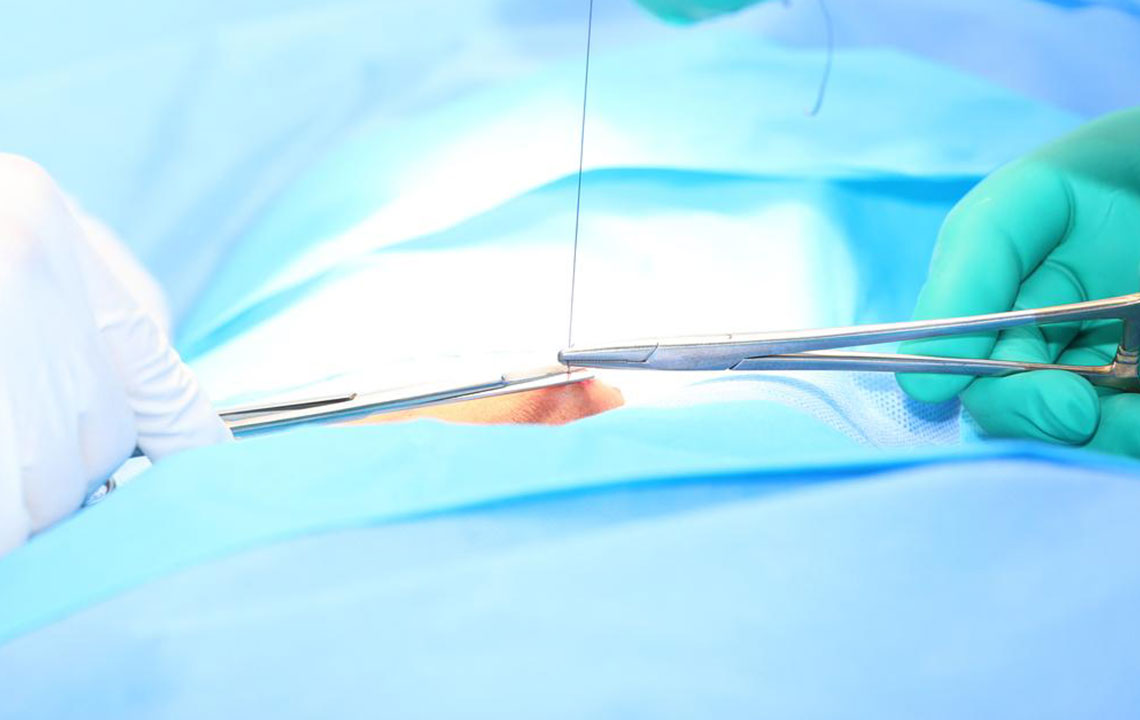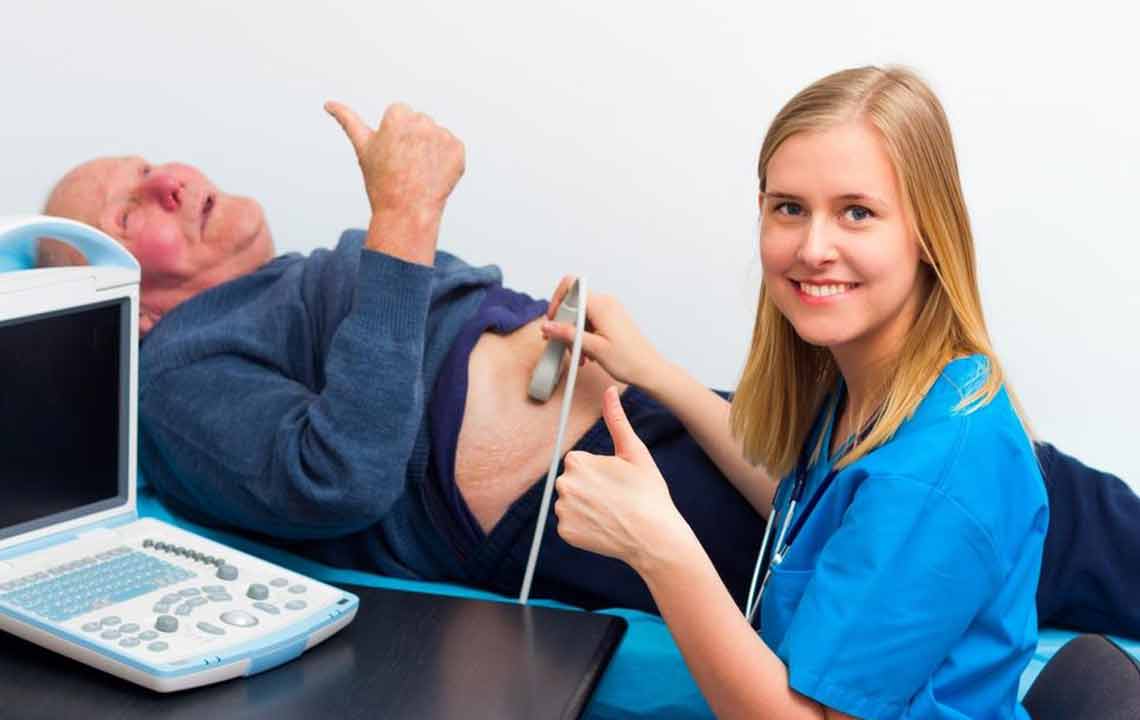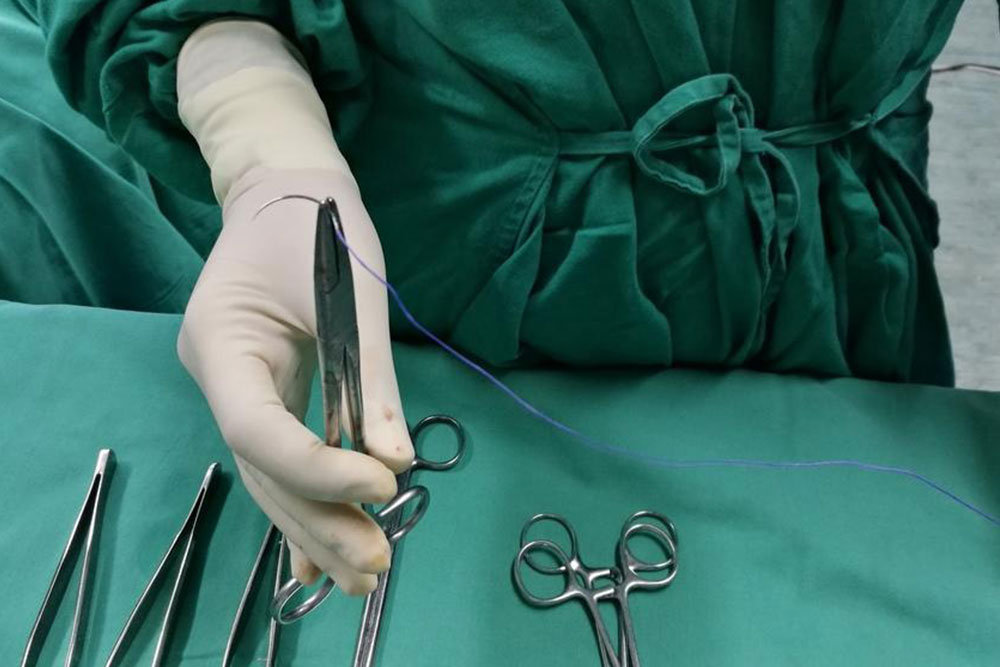Hiatal Hernia Treatment And Drugs
A hernia occurs when an internal part of the body pushes itself to another area where it does not belong. The diaphragm is a dome-shaped muscular wall that separates the chest from the abdomen and the hiatus is a small hole in it. The food pipe passes through the hiatus and reaches the stomach. In a hiatal hernia or a hiatus hernia, the upper part of the stomach moves up and into the chest through the hiatus.

The Causes Of A Hiatal Hernia
The root cause of a hernia is not known. However, researchers believe that injury or damage can weaken the tissues thereby allowing the stomach to move up through the diaphragm. Also, too much pressure on the stomach due to coughing, vomiting, lifting heavy articles, strain during bowel movements, etc, can cause a hiatal hernia.
Some people are born with unusually big hiatus which can make it easy for the stomach to move up through it. Other factors such as obesity, age, and smoking may up the risk of a hiatal hernia.
The Symptoms Of A Hiatal Hernia
It is rare for a hiatal hernia to show any symptoms. But if you do experience a few symptoms, it could be due to the bile or air entering the esophagus. Other symptoms include:
- Belching
- Pain in the chest
- Heartburn that worsens every time you lie down or lean over
- Trouble while swallowing
Hiatal Hernia Treatment
In most cases, a hiatal hernia will show mild symptoms such as heartburn or no symptoms at all. In such cases, you will not require any treatment. However, if the symptoms persist and affect your daily routine, you will have to consult a doctor who will further investigate and understand the severity of your condition. Hiatal hernia treatment may involve medications, home remedies, and even surgery. Here, we have discussed a few of the treatment methods.
- Antacids – Certain over-the-counter antacids such as Mylanta, Gelusil, Rolaids, Maalox, and Tums may neutralize the stomach acids and provide quick relief.
- Medications – Medication known as H-2 receptor blockers may help in reducing the acid production. H-2 medications include nizatidine (Axid AR), ranitidine (Zantac 75), famotidine (Pepcid AC), and cimetidine (Tagamet HB). If need be, your doctor may prescribe stronger versions of these medications.
- Other medications – Certain medications that block the acid production and heal the esophagus may also be prescribed. These include proton pump inhibitors (Lansoprazole and Omeprazole) that block the production of acid and allow the damaged esophageal tissues to heal. Stronger versions of these inhibitors may also be prescribed by the doctor in certain cases.
- Surgery – Surgery is one of the last options that may be used as a hiatal hernia treatment. This may be done in rare cases especially on people who get no relief from acid reflux and heartburn by medications.
The surgery may include removal of the hernia sac or placing your stomach back into the abdomen or reducing the size of the hiatus or restoring the esophageal sphincter.
The surgery may be performed by either making a single incision in the chest wall or in the abdomen. In some cases, the surgeon may make several small incisions in the abdomen and insert a tiny camera and special surgical tools. The surgeon will then view the images displayed on a screen (laparoscopic surgery) and perform the operation.
During the surgery, general anesthesia will be administered and the entire process may take about 2-3 hours to be completed. However, there is no guarantee that a hernia won’t come back even after the surgery.
People suffering from a hiatal hernia may experience symptoms only when it causes gastroesophageal reflux disease (GERD). This condition causes heartburn. In such cases, hiatal hernia treatment as mentioned below may need to be followed.
- You will have to lose weight in case you are obese and ensure that you maintain a healthy weight.
- Eat 6-7 small meals a day instead of the usual 3 large meals.
- Avoid eating foods that are acidic in nature such as caffeine, citrus fruits, alcohol, etc.
- Sleep with your head raised by about six inches to prevent the backflow of stomach content.
- Avoid leaning over or lying down immediately after a meal.
- Stop cigarette smoking.
Other surgical options that are aimed to correct a hiatal hernia and GERD are:
- Fundoplication
- Belsey (Mark IV) fundoplication
- Nissen fundoplication
- Thai fundoplication
- Endoluminal fundoplication (ELF)
- Toupet fundoplication
Some practitioners may recommend hiatal hernia treatment without any surgery. However, there is no evidence of such treatment producing substantial results. Avoid falling prey to such obnoxious claims and seek medical attention from reputed clinics.




